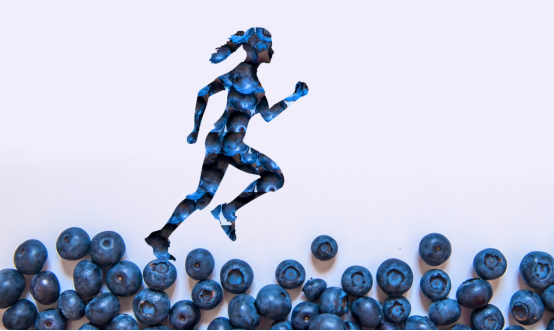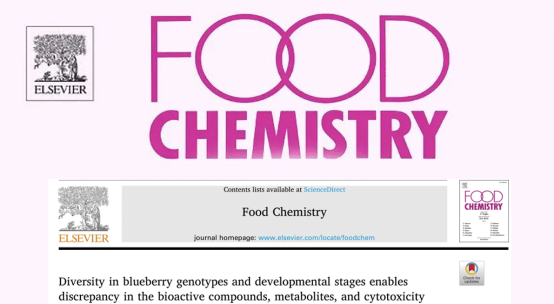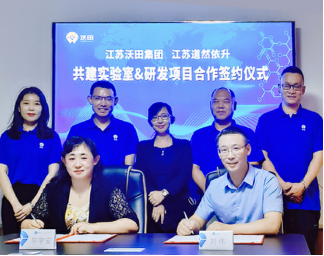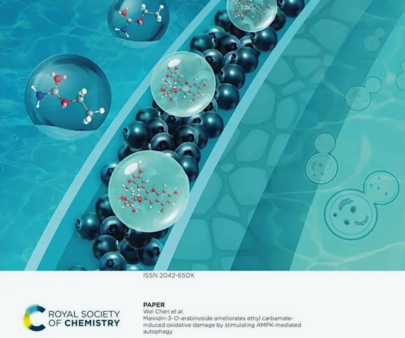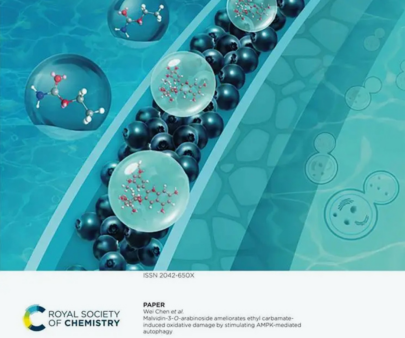
Anthocyan, also known as anthocyanins, is a kind of water-soluble natural pigments widely found in plants in nature. Anthocyan is a colorful aglylate obtained from the hydrolysis of anthocyanins. Anthocyanins are known as the seventh essential nutrient after water, protein, fat, carbohydrates, vitamins and minerals.In 1986, Masqueele applied for a patent on the free radical scavenger function of anthocyanin, and anthocyanin officially entered the market as an antioxidant function food. Experimental application has proved that anthocyanin can activate the immune system and make serum immunoglobulin free from free radical damage.
Recently,Malvidin-3-o-arabinoside ameliorates ethyl carbamate-induced oxidative Damage was published in Food & Function, an international Food journal published by the Royal Society of Chemistry Stimulating AMPK- Mediated autophagy ".Studies have shown that Ethyl Carbamate (EC) is a common chemical contaminant in fermented foods, which is classified as a group 2A carcinogen by the International Agency for Research on Cancer (IARC).However, there are few reports about enterotoxicity induced by EC and the potential prevention and control methods. Therefore, it is of great significance to conduct in-depth studies on the toxicity mechanism of EC and explore safe and effective food-borne functional factors for the prevention and control of EC-induced toxicity and the improvement of national health level.
We found that blueberry anthocyanin extract can effectively protect intestinal cells from EC induced oxidative damage. Further analysis revealed that malinin-3-O-arabinoside (M3A) was the main functional factor responsible for the effect of blueberry anthocyanin. Subsequently, confocal laser, transfection, Western Blot and molecular docking techniques were used to reveal that blueberry anthocyanin M3A inhibits the toxicity of urethrae-induced intestinal oxidative damage by activating the AMPK-mediated autophagy lysosome pathway.
In this study, we demonstrated for the first time that the naturally occurring blueberry anthocyanin M3A (malinin-3-O-arabinoside) inhibits the toxicity of urethrate-induced intestinal oxidative damage by activating the AMPK-mediated autophagy lysosomal pathway. The research results provided a new idea for the protection of the toxicity induced by ethyl carbamate in fermented food, and pointed out the direction for the deep processing and functional food development of blueberry.
 CN
CN ENGLISH
ENGLISH

